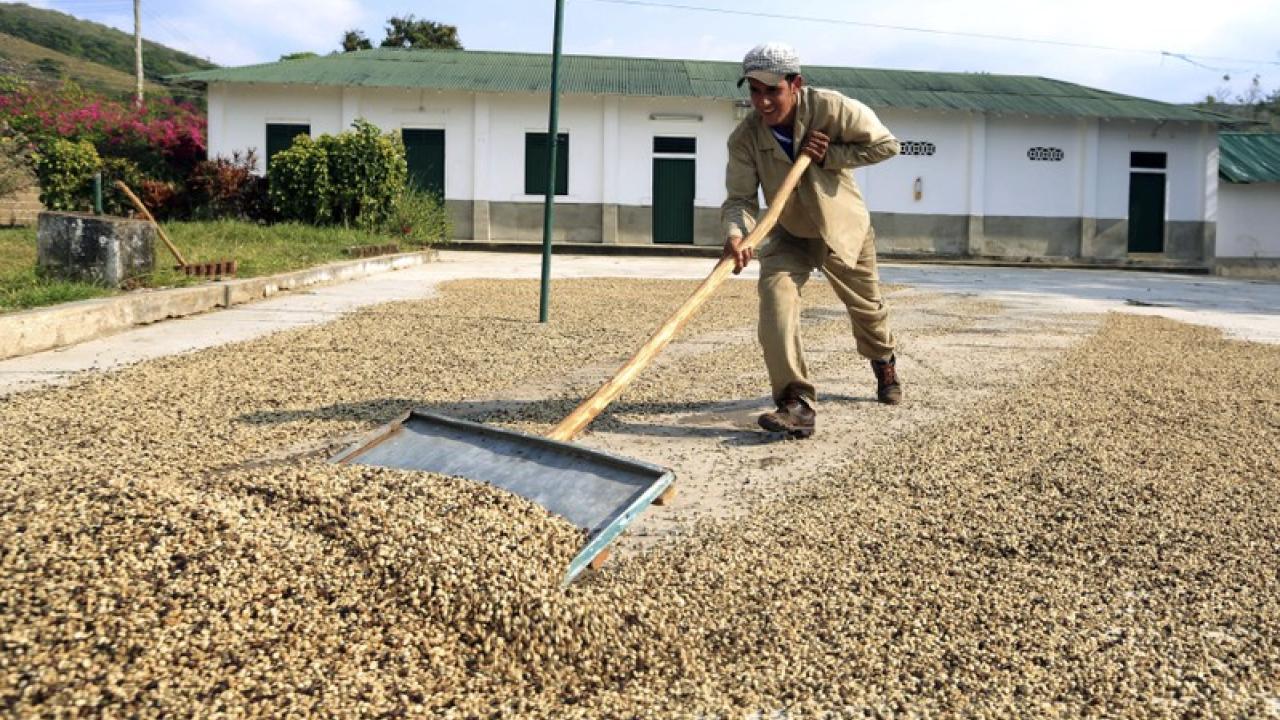
As of December 31, 2024, EU regulations for receiving agricultural imports will change, which implies an additional challenge for the entire logistics and production chain.
The European Union (EU) has historically been the second most important bloc for Colombian coffee exports, behind the United States.
In 2023, these external grain sales represented a quarter of the total exported from Colombia to this block, with US$ 705 million, which was 27% less than in 2022, according to DANE figures.
To strengthen the commercial relationship, which contributes to the development of the regions and 552,000 families that work in the coffee sector, the Colombian Agricultural Institute (ICA) and the National Association of Coffee Exporters (Asoexport), signed a memorandum of understanding, with with a view to complying with the safety protocols of the EU's European Green Deal.
This is a package of political initiatives that seek to put the European Union on the path towards an ecological transition. One of the strategies is the Zero Deforestation program, which was approved in June 2023 and has a transition period of 18 months that ends on December 31, 2024. This and “from Farm to Table” are among the points that have the greatest impact for the coffee-growing country, especially for agricultural exports.
“We want to act proactively against the regulations that the EU has established, in this case the safety regulations in the "Farm to Table" program, to ensure the admissibility of Colombian coffee in this important market," said Gustavo Gómez. , president of the National Association of Coffee Exporters of Colombia (Asoexport).
Gómez assures that the alliance with the ICA is vital to carry out diagnostic and sampling exercises, with the help of Swiss Contact, along with a training phase in good agricultural practices, "so that the EU has complete security that coffee of origin Colombian meets the highest standards of quality and safety.”
For his part, the general manager of the ICA, Juan Fernando Roa, pointed out that complying with the safety protocols of the Pact allows “working for the environment, food safety and the admissibility of this product to international markets, and thus strengthening the economy of the country".
WHAT DOES THE AGREEMENT CONSIST OF?
The memorandum document indicates that its main objective is “the promotion of joint actions aimed at promoting the safety of Colombian coffee and maintaining the good name of the Colombian coffee sector in international markets through actions that strengthen technical and technological capabilities and expertise. and knowledge of the coffee sector.”
Four specific actions are contemplated there:
1. Support training and technical assistance efforts in Good Agricultural Practices (GAP) and Integrated Pest Management for coffee producers in Colombia, with a focus on the safety of Colombian coffee.
2. Promote the design of tools and technical assistance models for coffee producers, with a focus on safety.
3. Support the development of the pilot project carried out by Asoexport, through the practice of laboratory tests, on green coffee samples, in order to detect traces of Chemical Products for Agricultural Use (PQUA), validate their correct application in coffee, respect for grace periods and compliance with the established Maximum Residue Limits (MRL).
4. Generate public policy recommendations for the formulation of a National Plan for Surveillance and Control of Chemical Residues in coffee production.
The EU's European Green Deal, within the framework of the Farm to Fork Strategy, seeks to configure a sustainable food system and promote organic agriculture, seeking a 50% reduction in the use and risk of chemical pesticides and the use of more dangerous pesticides by 2030.
Finally, Javier Díaz Molina, president of Analdex, expressed that “this type of alliance between the public and private sectors is essential for the country to meet the demands of international markets. Thanks to this, we hope that Colombian coffee can grow in its exports to a key market such as the European Union.”









